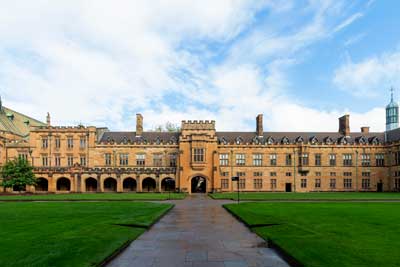This seminar series aims to facilitate sharing and learning about the research of our fellow staff members. Early and mid-career researchers will present a broader context of their work which should be accessible and relatable to the entire School community. Seminars will be held in-person, followed by a friendly gathering and refreshments in the SMRI common room or out on the terrace (weather permitting). Everyone is warmly invited.
To receive notifications of upcoming seminars, please subscribe to the weekly seminar email update.
One School Seminar ‘Working with data’
Garth Tarr, University of Sydney
27 October 2022
Abstract: In this talk I’ll provide a brief overview of some of my research interests: understanding the stability of feature selection, robust modelling methods and multi-class modelling.
– Is the model you’ve selected uniquely “best”? (Spoiler: probably not)
– How can we develop methods that are resistant to data corruption?
– How can we take advantage of known structures in our data? For example, discover which groups in our data respond similarly to various inputs.
There are great funding opportunities associated with applied research. I’ve established a long-term association with Meat and Livestock Australia, particularly around predicting beef and sheep eating quality, which has spawned many projects. I’ll share some of my experiences of working with industry partners, interdisciplinary collaborators, and PhD students.
One School Seminar ‘Studying manifolds in Geometric Topology’
Jonathan Spreer, University of Sydney
3 May 2022
Abstract: Manifolds, that is, spaces that locally look like Euclidean space, occur in many settings and fields of research within and outside mathematics. In dimension two, manifolds are called surfaces.
Geometric topology is the study of manifolds. But unlike in most other settings where manifolds occur, we are not primarily interested in their shapes, but in their properties that remain unchanged under continuous deformations.
I will explain how manifolds can be most conveniently represented; go over some methods to study these representations; and demonstrate how these methods can give rise to deterministic algorithms solving fundamental problems in the field.
The flavour of this research highly depends on an integer: the dimension of the manifolds under investigation. In this talk the flavour will be mostly three.

